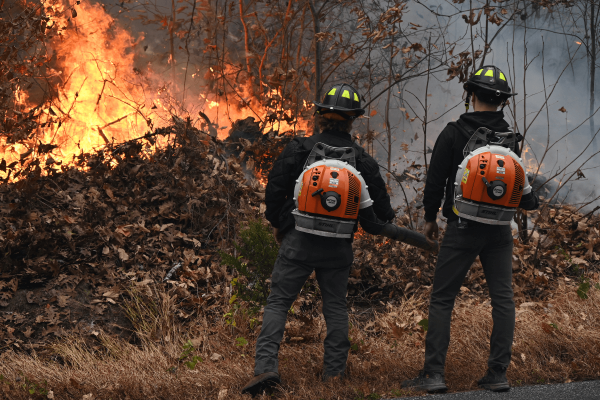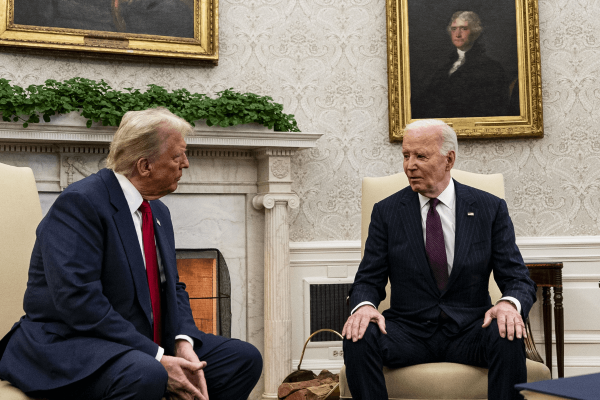I recently had the honor of giving a talk around the theme of The Kin-dom of God According to Women, inspired by Ada Maria Isasi-Diaz and Mujerista theology, which is so deeply beautiful. I spoke about systems of racial and gender oppression that stand in the way of kin-ship — violent, fractured structures that need to be dismantled. And I spoke about belonging.
I’m always very curious about what belonging truly means to a community, and how it is demonstrated. I always wondered, who makes the rules of belonging? Who decides what is and isn’t allowable? Can it go so far as to diminish our humanity or cause us to diminish someone else’s? Many of my early talks with God included questions like these. I still don’t have the answers to all of them, but I’ve spent the past several years trying to find a home inside of the tension between our revolutionary capacity for love as human beings, and our frequent tendencies toward exclusion, destruction and harm.
Throughout most of my life, the place where I have observed this chasm between love and exclusion most powerfully displayed is the Christian church in America.
One of the most loving people I know is a vaguely agnostic Jewish man, whose work in the world looks like educating folks (himself included) about implicit bias and systemic oppression — thanks Jon! Jon looks like Jesus to me, vaguely (just around the eyes) in my imaginings of Jesus’ physical being, and very profoundly in his deeds of deep care for his friends, family, and neighbors. Jon and his wife, my dear friend Anna, strive for a beloved community in a way that makes me believe it's possible. If there is a warring inside of us between the light and darkness — and I believe at times that there is — Jon is a person who consistently and tirelessly feeds the light, feeling his way toward it. He’s not perfect. He is trying and human. In conflict he looks for inroads, knowing that they might not always lead to restoration of what's been damaged, but they can certainly lead to hearing, possibly understanding. All does not have to be lost. We can always choose to uphold one another's humanity.
I didn’t grow up attending church every Sunday: I was a two-Sundays-a-month-when-I-spent- the-night-at-Laura-G’s-house kind of Christian in my church attendance. I started a sort-of friendship with Jesus that felt more intentional about 10 years ago when I was 23. And in my time in various churches, I have experienced true compassion in so many small ways (that are not small at all). But generally, I have seen what very often feels like an amalgamation of the biggest bullies you knew in grade school, but polished with a sticky-sweet-passive-aggressive veneer, and sat in a position of leadership — somewhere near the window — of a church.
I've seen it as queer friends were being called "lesbians" in hushed, taunting tones before they even had the space to examine their own sexuality and relationship dynamics. I've seen it as people were told their clothes weren't "good enough" to be singing on main-stage at a hip church, underneath a billboard that displayed the words: "You Belong Here." I have seen it personally, as I came into conflict with a friend in a visible leadership position at the church — I watched this individual burn the bridge between us to ashes and curse the ground.
Oftentimes we operate with a scarcity mentality as it relates to care and empathy, as if we might run out of it. We operate as if making space for another human being’s viewpoint or experiences, albeit different from our own, will cost us something that we can’t afford to offer. This is a sure shame. I believe that we (you and I) have a profoundly deep, miracle-like capacity for true care. Oh it can HEAL, y’all. I’ve seen it! My good buddy Jennifer Fulmer says, “care is currency with God. Care is currency in the kingdom.” I love that, and I agree.
I do not discount the very real fact that in conflict, many people reach for their sharpest knives to wound, and then retreat to their most protected places. There are crimes of such horrific violence that warrant this kind of response.
In the case of lesser infractions, where hurt and pride are the main things driving us, it is my desire to take my wounds of shame or disappointment and hobble to a little patch of higher ground. I'd like to find there a different perspective or fresher air. It might take me some time to get there because I shattered three bones on the fall down from my soapbox, but when I can gain some perspective and beautiful humility, I’ll try to keep in my mind the person on the other side of my mistake-mountain. I’ll remember the stories that I know about them. I’ll close my eyes and remember how they smile when the sun is in their eyes, because that’s one of my favorite things about humans: squinty-eyed smiles. I’ll remember that a divine God is so deeply nuanced and loving that they made me, and also you. I’ll remember that you and I first learned how to grow, how to receive life, while we were in our mother’s womb — what a thing to have in common. I’ll remember that we (all of us) came from a woman. We came from a tenderness and a grit that allowed us to sustain life against so many odds. I’ll try to let the wonder of this wash over me.
We live in a call-out, cancelling, blocking kind of culture. I’ve been guilty of this too. And no doubt, some folks consistently feed the darkness, and it manifests itself in hateful ways where common ground will not be found. But many people are just figuring life out in ways that possibly don’t meet our expectations. They should be afforded humanity on their journey. It’s also highly unlikely that they ever set out to meet our expectations in the first place, so let’s all find some seats to take. Let’s trade our hushed-tones-trash-talking for cheering each other on. Let us operate with an abundance of grace, because if we are followers of Jesus, isn’t that what was done for us?
I don’t know how to reconcile this tension between the beautiful ways that we create belonging through care, empathy, and love, and the terrible ways we hurt, exclude, and diminish one another. I do know that we can be both light and darkness. We can be both holy and healing at the same time. I know we can make amends — I know that’s an action, not just a word. I think we have to choose if we will be safe or unsafe people for each other.
Sometimes I marvel at the whole thing: that God would choose us (clumsy, fumbling, knife-sharpening, imperfectly-perfect-us) to be keepers of one another’s humanity, to belong to each other.
Look down at your hands and maybe close your eyes to take in your breath and heartbeat. If we can let some of that wonder wash over us from time to time, if we can see the wonder in those around us, I know we can keep doing some real good here. Keep trying, feeling our way toward the light.
Got something to say about what you're reading? We value your feedback!






